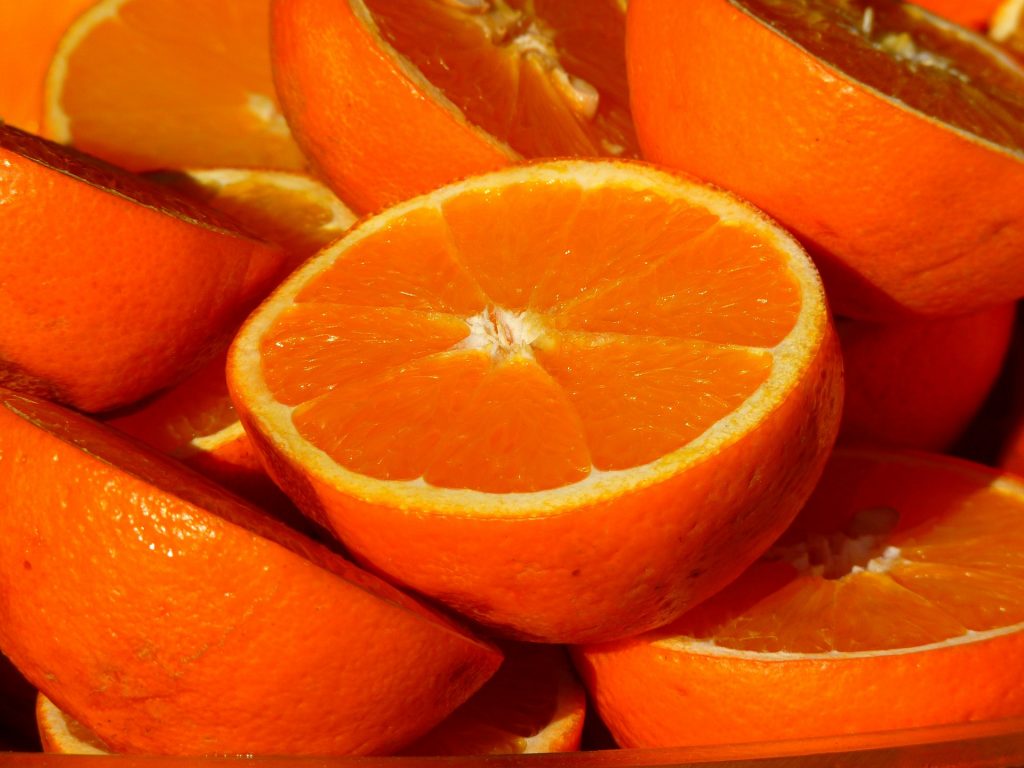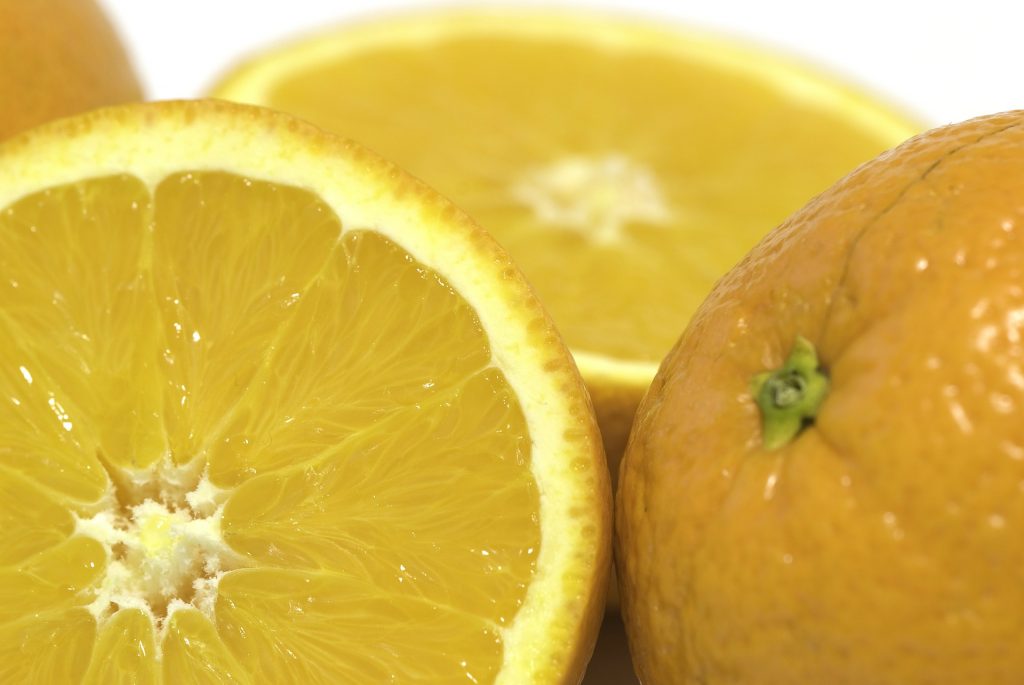 Oranges and other citrus fruit are a good source of polyphenols and are rich in the flavonoid subclass. In particular, oranges contain the flavone glycosides narirutin and hesperidin that may have particular health effects. Polyphenols generally have been shown to be bioavailable in humans, and once absorbed they may exert particular health effects against cardiovascular disease, cancer and diseases of inflammation. The exact mechanism by which they achieve this is not fully understood, but may relate to their ability to regulate certain genes, as well as due to their antioxidant activity. Oranges and orange juice have been shown to exert particular biological effects in humans and these effects may relate to the presence of hesperidin and narirutin. Orange juice has been shown to reduce free radical activity in human tissue by upregulation of antioxidant enzyme systems, as well as by exert beneficial effects on cardiac parameters such as blood pressure, and through improving body composition.
Oranges and other citrus fruit are a good source of polyphenols and are rich in the flavonoid subclass. In particular, oranges contain the flavone glycosides narirutin and hesperidin that may have particular health effects. Polyphenols generally have been shown to be bioavailable in humans, and once absorbed they may exert particular health effects against cardiovascular disease, cancer and diseases of inflammation. The exact mechanism by which they achieve this is not fully understood, but may relate to their ability to regulate certain genes, as well as due to their antioxidant activity. Oranges and orange juice have been shown to exert particular biological effects in humans and these effects may relate to the presence of hesperidin and narirutin. Orange juice has been shown to reduce free radical activity in human tissue by upregulation of antioxidant enzyme systems, as well as by exert beneficial effects on cardiac parameters such as blood pressure, and through improving body composition.

Oranges are a good source of the flavone group of flavonoids and contain both hesperidin and narirutin, two important dietary flavone glycosides. These flavone glycosides may explain some of the health benefits of oranges.
For example, in a recent study published in the Journal of Nutrition, researchers investigated the effects of low and high flavone content orange juice. Over the course of 12 weeks The juice provided 299 or 745 mg per day of polyphenols to the obese and overweight subjects enrolled on the study. The results of the study showed that following 12 weeks, both the high and low polyphenol content orange juice caused a decrease in urinary concentration of markers of genetic damage and lipid peroxidation, suggesting that the orange juice had provided an antioxidant effect. The antioxidant enzymes glutathione reductase and superoxide dismutase were also upregulated in the subjects, with the high flavone orange juice increasing the superoxide dismutase more than the low flavone orange juice. The subjects also experienced a significant reduction in body mass index, waist circumference, and leptin concentrations, suggesting that the orange juice had beneficial effects on body composition.

Whole oranges may be a healthier option compared to orange juice, because the fibre in whole oranges may exert beneficial glycaemic effects that prevents nutrient overload from the sugars in the juice.
The loss of body weight may have explained the reduction in systolic and diastolic blood pressure seen in the subjects of both types of orange juice. For those on the high flavone orange juice the reduction in blood pressure was significantly greater however compared to those on the low flavone orange juice. Therefore the orange juice flavones may have had some additional effect on blood pressure, not explained by the improvements in body composition. These results suggest that orange juice exerts significant health effects in humans and may allow improvements in body composition in those who are overweight and obese. There is no reason to suggest that oranges would not exert similar effects as their juice. In fact, because oranges contain fibre, that is not present in juice, there may be additional health effects from the consumption of whole oranges. Current recommendations are to consume whole fruit rather than the juice as juice may have some detrimental effects of blood sugar control.
Eat Well, Stay Healthy, Protect Yourself
RdB
